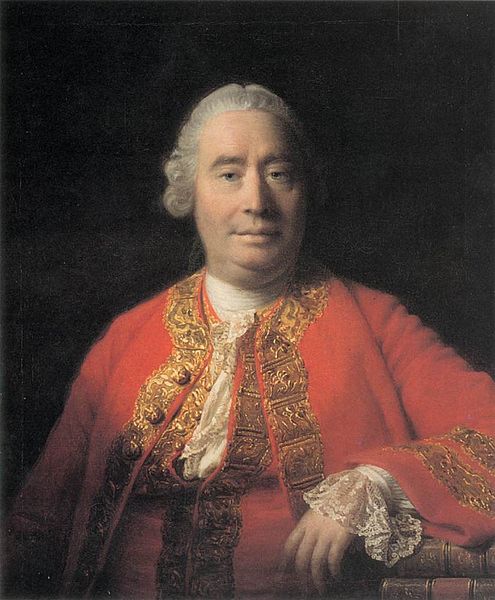 |
| Book cover, courtesy of samharris.org |
So even a best-selling author like Sam Harris had some finagling to do to get his recent, The Moral Landscape, which is at its core a short manifesto calling for science to re-engage in the debate over human values, published as a book. What would have been a clarion cry of "to the barricades" to dislodge the religious monopoly over the divining and devising of moral frameworks, becomes, as a result of market necessities, a longer and less focused work. Harris's central premise does shine through, even somewhat obscured by the extras that he tosses in to bring the book to a requisite, consumer-friendly 300 pages or so.
The author states clearly at the outset what he aims to accomplish: "The goal of this book is to begin a conversation about how moral truth can be understood in the context of science."
 |
| Sam Harris, courtesy of samharris.org |
As it turns out, Harris is interested in much more than simply starting a conversation about human values. In the first chapters of Landscape he outlines a program for seizing the moral high ground from those who have traditionally occupied it, namely theologians and religious leaders, and to do so in spite of the dismissive criticism of moral relativists in academia and elsewhere, who feel that any claim of universal moral truth is fundamentally misguided and that the search for such truth violates some prime directive of anthropological studies which grants equal moral status to all cultures unconditionally.
 |
| David Hume, historian and philosopher (1711-1776) |
So, how does Harris address these considered criticisms from philosophical quarters? He, first and foremost, unabashedly embraces moral realism, insisting that propositions about ethics refer objectively to the properties of things, specifically that "meaning, values, morality and the good life must relate to facts about the well-being of conscious creatures - and, in our case, must lawfully depend upon events in the world and upon states of the human brain."
What distinguishes Harris from his predecessors in their pursuit of a long-sought grounding of a utilitarian system of ethics is his insistence that the field of neuroscience, in which he holds a recently minted Ph.D., will assist us in finally separating the chaff of mere opinion about the nature of human and animal suffering from the wheat of scientific fact. This is the tantalizing promise that Landscape, as manifesto, provisionally holds forth, but, unfortunately, one on which Landscape, as a book, ultimately fails to deliver.
 |
| Harris's article (PDF) in Annals of Neurology |
[Doctoral students dream that their dissertations will see widespread publication. Best-selling authors such as Harris, though, have the means to make this dream come true by including that work in a larger book. As an erstwhile graduate student I must say that I sympathize with this temptation.]
 |
| Official portrait of NIH Director Francis Collins |
Take for instance the protracted excoriation of Francis Collins, director of the National Institutes of Health and a former leader of the Human Genome Project, who also happens to be an "unrepentant" (as far as science is concerned) born-again Christian. To be sure, it is perplexing how a scientist as accomplished as Collins can reconcile his reliance on a rational system of understanding the world with his conviction that God has specifically meddled in the process of human evolution. Nonetheless, whether Collins is simply a misguided thinker or whether, by setting a bad example, he disqualifies himself from holding a position of significant scientific authority, has little to do with presenting the case for the science-based values agenda that Harris has proposed as his stated goal.
In spite the structural flaws resulting from this kind of padding, I feel that Landscape succeeds as an important political tract. To see why I say this it is useful to reflect on a brief history of the "values" debate that rages between science and religion.
 |
| Charles Darwin by Julia Margaret Cameron |
With the publication of On the Origin of Species in 1859, Charles Darwin brought this simmering confrontation to a head. In one respect the appearance of his theory of evolution signaled the beginning of the utter routing of religion as an arbiter of claims concerning the physical world, although, admittedly, keepers of the faith such as Francis Collins persist in offering a significant "God of the gaps" rearguard resistance. Yet the near elimination of religion from the battlefield of science, left believers ensconced as the uncontested rulers of the realm of morals and values.
In an attempt to settle the issue once and for all and to thwart the reintroduction of religion into the U.S. secondary school curriculum under the guise of a so-called theory of Intelligent Design, in 1997 Stephen J. Gould fashioned a truce of sorts, that goes by the name non-overlapping magisteria (NOMA). Gould's division of the world into separate domains - one with morality and values as the province of religion, and one with nature as the province of science - was widely accepted in a Rodney King, "can we all just get long?" kind of way.
 |
| Missouri Compromise Line |
In this regard I see Harris with Landscape playing a role similar to that of a firebrand American abolitionist pamphleteer of the mid-19th century, disdainful of a compromise which he feels inappropriately concedes vast territory to the control of forces whose judgement and integrity he considers faulty, and not the least bit interested in seeking accommodation, he has decided, in no uncertain terms, to undermine a flawed and fragile truce.
Although Harris's new book may fail in certain ways as an entirely coherent treatment of the question of the the scientific basis of human values, it succeeds quite well as a political and intellectual broadside, shots fired marking the end of a ineffectual "gentlemen's agreement" ceasefire over disputes of moral legitimacy. In a world where the Taliban and the Tea Party do not demur in staking their own claims on the moral landscape, I for one am very glad that Sam Harris has taken up the battle.

Climb Every Mountain - Sam Harris's "The Moral Landscape" by Marc Merlin is licensed under a Creative Commons Attribution-NonCommercial-NoDerivs 3.0 Unported License.
Based on a work at thoughtsarise.blogspot.com.